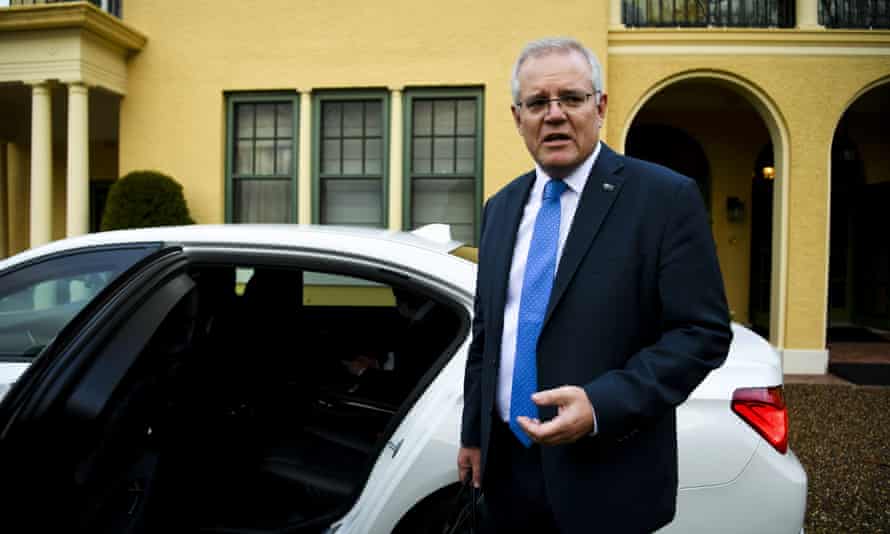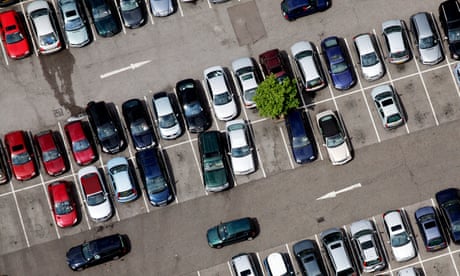Extract from The Guardian
The slapdash culture of entitlement that lurks behind the decision-making that brought us sports rorts and now car park cronyism reeks

Last modified on Sat 3 Jul 2021 06.01 AEST
The great modernist poet TS Eliot thought April was the cruelest month. He obviously didn’t know Scott Morrison.
We are opening with April, because we need to transport ourselves back to April 2019 when Canberra’s political class was hurtling towards an election that pretty much everybody (apart from Morrison) thought the Coalition would lose.
Given they’d reached five minutes to midnight, poised between political death or possible resurrection, the government went into hyper-drive. My colleague Christopher Knaus tracked some of the manic activity contemporaneously, and found in the fortnight between 27 March and 11 April, when the caretaker convention took effect, the government announced 70 appointments to boards, statutory bodies and tribunals, and diplomatic postings. One in five of the people appointed to government bodies in that fortnight had links to the Liberal or National parties.
This was also the time when the government was shovelling the now infamous sports grants (of the colour-coded spreadsheets) out the door. Bridget McKenzie (who lost her job in the fracas after the Australian National Audit Office’s excoriation of the program in 2020) signed a brief detailing the successful grants on 4 April.

Then things got busy, busy, busy. Subsequent to that there was email traffic between McKenzie’s office and Morrison’s office, and between McKenzie’s office and Sport Australia. This all happened on 10 April and 11 April – the day the parliament was prorogued for the 2019 election. Caretaker conventions were in effect from 8.30am on 11 April.
According to the ANAO, during all the busy to and fro, one project came out of the minister’s spreadsheet and another came in at the request of the prime minister’s office. Then one project was removed and nine added. Three versions of the material went to Sport Australia on 11 April: one at 8.46am, one at 12.35pm, and the last at 12.43pm.
I’ve returned to the high watermark of April 2019 this weekend because on Monday, the ANAO documented another edifying chapter of taxpayer-funded grant-making that played out during that same time period.
This new audit got overshadowed in a week where major cities went into lockdown and the leaders of the federation engaged in a public punch-up over whether or not people under 40 should have access to the AstraZeneca vaccine, and whether the Morrison government needed to slow the number of overseas arrivals given the sluggish pace of the vaccination rollout and the lack of large-scale alternatives to hotel quarantine.
But this audit was a doozy, nonetheless. This one was an assessment of the Coalition’s $660m commuter car park fund – a program that allowed Liberal incumbents and candidates to select and announce projects in their electorates.
According to the ANAO, there were 47 projects funded under the broader urban congestion fund, and 40 were selected within the three-month period leading up to the caretaker period commencing on 11 April 2019. Morrison decided on 44 projects, including 27 commuter car park projects, the day before the caretaker period commenced. Seven projects were committed during the election.
Rather than the sports grants process, which purported to include a merit-based selection process, this one involved government MPs bowling up their asks. As the ANAO puts this more politely: “The approach to project identification included canvassing the members of the House of Representatives for 23 electorates, as well as Coalition Senators or candidates for six electorates then held by the Australian Labor party or Centre Alliance”.
“Between September 2018 and April 2019 two ministerial offices canvassed House of Representatives colleagues in the Coalition-held electorates, Coalition senators in relation to four of the electorates held by the Australian Labor party (ALP) and the Liberal candidates for the other two electorates”.
Yes, really. That was apparently the process. Ask, and you may well receive. Thank you. The end.
The ANAO reports the end result of “bring me your commuter car parks, thank you, the end” was 64% of the commitments were in Melbourne “notwithstanding that Infrastructure Australia has identified that the majority of the most congested roads in Australia are located in Sydney”.
Most of the chosen car parks were in the south-east of Melbourne when “data shows that Melbourne’s most congested roads in 2016, and as forecast in 2031, are predominantly in the north-west”. And 77% of the funds went to Coalition-held electorates, with a further 10% targeted specifically at seats the Coalition wanted to win.
Makes your heart sing, doesn’t it? Evidence-based policy.

Can you guess which ALP-held electorate was the most successful beneficiary of this program? It was the seat of Lindsay in Sydney’s west, with three projects committed. The Coalition picked up Lindsay in 2019.
Tracking down the car park announcers in Melbourne also tells a story that takes us beyond that basic “ask and you may well receive” point. It tells us that back then, the Coalition was nervous about seats that would not normally be in play.
Now, if you are one of those old-fashioned people interested in whether or not the blizzard of government announcements either before or during elections ever translates to delivery, here’s the situation report. Only two sites of 47, thus far, have had construction completed and two projects were cancelled a few months after they were announced.
I mean seriously. This is fifty shades of bad. The slapdash culture of entitlement that lurks behind this decision-making reeks. And yet this behaviour persists, apparently immune to all forms of public embarrassment or rebuke.
As well as all the utterly reasonable calls for integrity commissions to police the federal arena, there is now a serious case to get rid of discretionary grants programs entirely given the behaviour the ANAO keeps documenting – or at least reform these programs so fundamentally that they can’t be used like a taxpayer-funded ATM.
Will anybody, apart from political actors outside the major parties, have the will to initiate this conversation? Labor has been revving up the completely warranted critique of the Morrison government’s “slush funds”, and also supports an integrity commission. But there is little sign the leadership has the will to radically transform the system.
Anthony Albanese was asked at the National Press Club on Friday whether he was prepared to end the now entirely unsubtle practice of ministers skewing grants programs for electoral advantage. Albanese hedged. He said Labor would apply integrity and proper process to decision making, but governments would continue “make decisions” because that’s what they were “elected to do”.
Of course we need governments to make better decisions.
That’s blindingly obvious.
But we have reached the point now where a much more fundamental reassessment of the status quo is required.
No comments:
Post a Comment